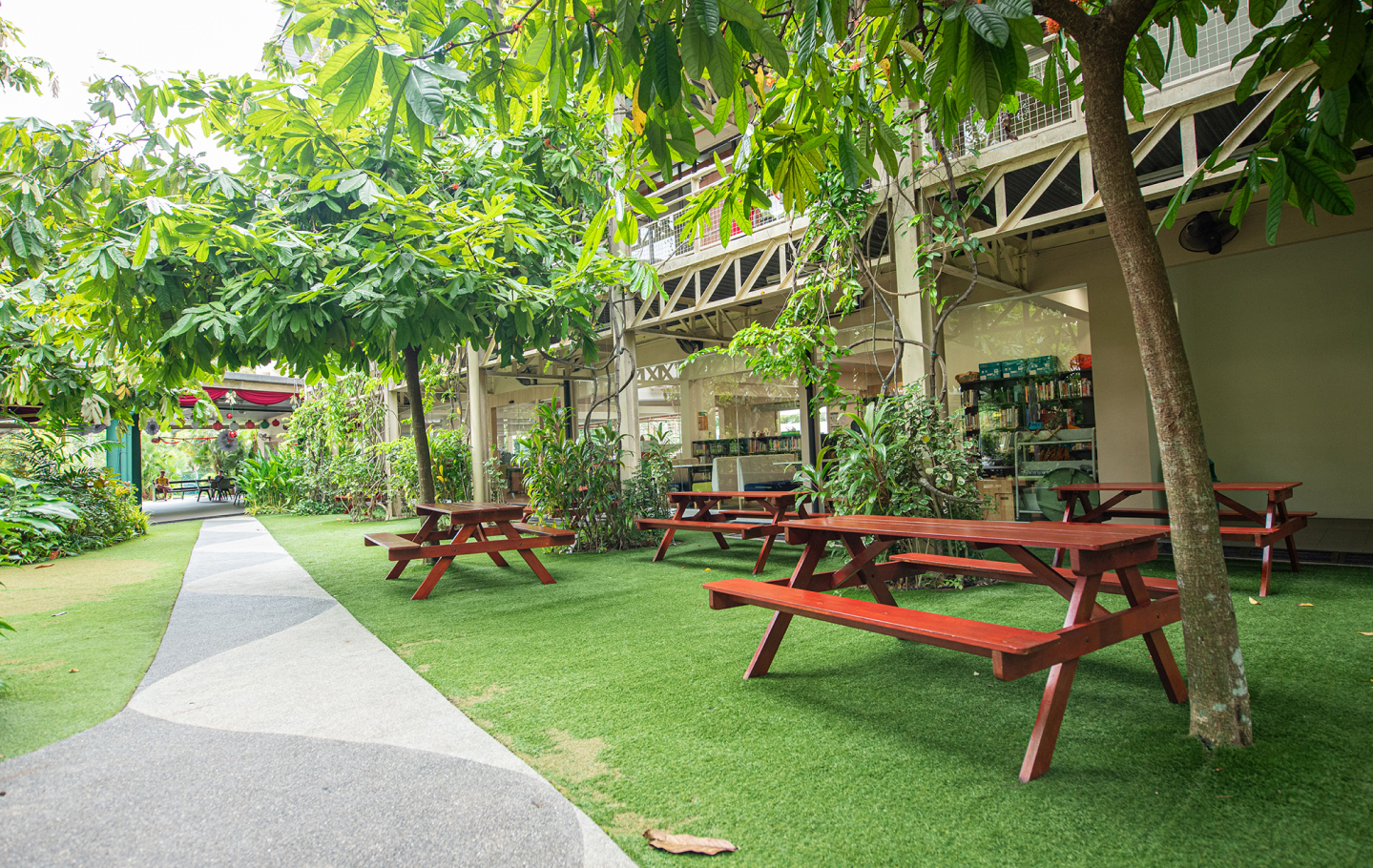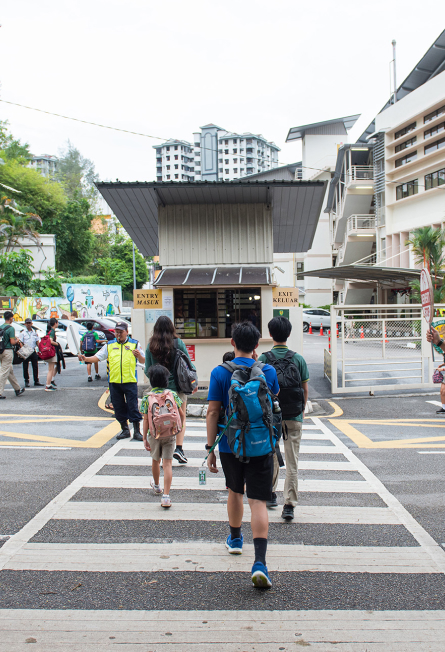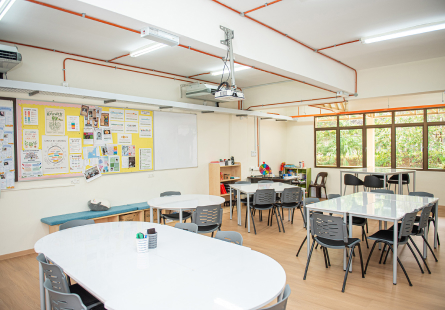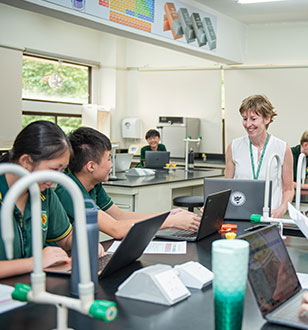
CIS Accredited High
School Diploma
A High School Diploma is a pre-university qualification awarded to a student on satisfactory completion of the final four academic years in secondary school (High School – Years 10-13). As Uplands is a CIS-accredited school, our High School Diploma is also CIS accredited which serves to recognise the standards and rigor associated with this graduation qualification. We actively encourage all High School students at Uplands to be working towards the High School Diploma as part of their programme. This involves ensuring appropriate subject choices are made from Year 10 and the minimum passing grade is achieved in each of their courses. For many students, this High School Diploma will be in addition to IGCSE and IBDP qualifications. Some students choose to take no external examinations and therefore the High School Diploma would be their graduating qualification that allows them to access tertiary education.
In order to graduate with a High School Diploma students must achieve 24 credits across their four years of study at Uplands. Each year-long course receiving a passing grade in Years 10 through 13 will be recorded on the official Uplands transcript as 1 credit. The minimum credit that may be awarded is 0.5 – equivalent to Term 1 or Term 2 & 3. Year 10 students are expected to take one subject from each subject area to ensure that a full and appropriate academic track can be completed and to meet the minimum requirements of the High School Diploma. This includes English, Mathematics, Science, another language, a Humanity and an Arts subject in Year 10.


High School Diploma Regulations
- Satisfactory completion of IB CAS requirements or High School Diploma modified CAS.
- Comply with the minimum 90% attendance requirement for all Uplands students.
- Students must attend for 3 consecutive terms (equivalent of one school year) and gain at least 6 Uplands credits.
- Students must be enrolled in the graduation year at the time of graduation.
- Credit is given only to courses in Years 10 to 13.
- A maximum of 4 credits only will be approved for Special Elective courses. Prior approval from the Head of Secondary is required before pursuing these courses.
- EAL and Learning Support are considered an elective.
- Courses may only be waived at the discretion of the Head of School. Waivers for students with Learning or Language needs must have an educational assessment to support the application.
- Students must be enrolled in a minimum of 6 credits per year.
- Credit recovery will be offered to students who fail to meet the success criteria. Depending on the circumstance this may require additional study or further assessment evidence.
- A passing grade for IGCSE subjects is a C or 4, for IB is a 3.
How can the High School Diploma provide flexibility and alternative pathways?
A High School Diploma is a pre-university qualification awarded to a student on satisfactory completion of the final four academic years in secondary school (High School – Years 10-13). As Uplands is a CIS-accredited school, our High School Diploma is also CIS accredited which serves to recognise the standards and rigor associated with this graduation qualification. We actively encourage all High School students at Uplands to be working towards the High School Diploma as part of their programme. This involves ensuring appropriate subject choices are made from Year 10 and the minimum passing grade is achieved in each of their courses. For many students, this High School Diploma will be in addition to IGCSE and IBDP qualifications. Some students choose to take no external examinations and therefore the High School Diploma would be their graduating qualification that allows them to access tertiary education.
In order to graduate with a High School Diploma students must achieve 24 credits across their four years of study at Uplands. Each year-long course receiving a passing grade in Years 10 through 13 will be recorded on the official Uplands transcript as 1 credit. The minimum credit that may be awarded is 0.5 – equivalent to Term 1 or Term 2 & 3. Year 10 students are expected to take one subject from each subject area to ensure that a full and appropriate academic track can be completed and to meet the minimum requirements of the High School Diploma. This includes English, Mathematics, Science, another language, a Humanity and an Arts subject in Year 10.
- Would prefer to focus on a narrower or different range of subjects, English acquisition, vocational courses, or online courses.
- Are considering a university pathway that does not require the IB Diploma (eg USA universities)
- Are targeting foundation or other entry pathways
- know that their post-secondary choices do not include university study (eg apprenticeship, military service)
- May struggle or do not wish to meet the successful completion requirements for the IB Diploma Programme but wish to experience parts of the IB programme.

Some examples of flexible pathways that Uplands provides through High School might be:
Electing to follow fewer subjects at Higher Level than the three demanded by the IB Diploma;






Curriculum
Students choosing non-certification pathways or high school courses will still be following the IGCSE or IBDP curriculum and will be in the same classes as their peers. However, the difference will be in the type and form of assessment that students receive. Whilst exams are part of the assessment process, they are a much less significant aspect as the students are not taking external examinations. Therefore their final grade for the year and so their credit is determined by a variety of assessments completed throughout the year including tests, group and independent projects, presentations, essays, practical work and much more. This is a more holistic approach to assessment and considers the individuals full portfolio of work from across the year.


